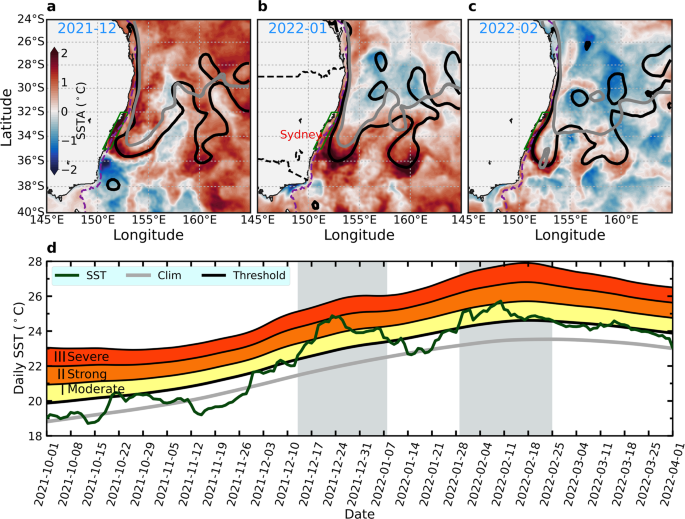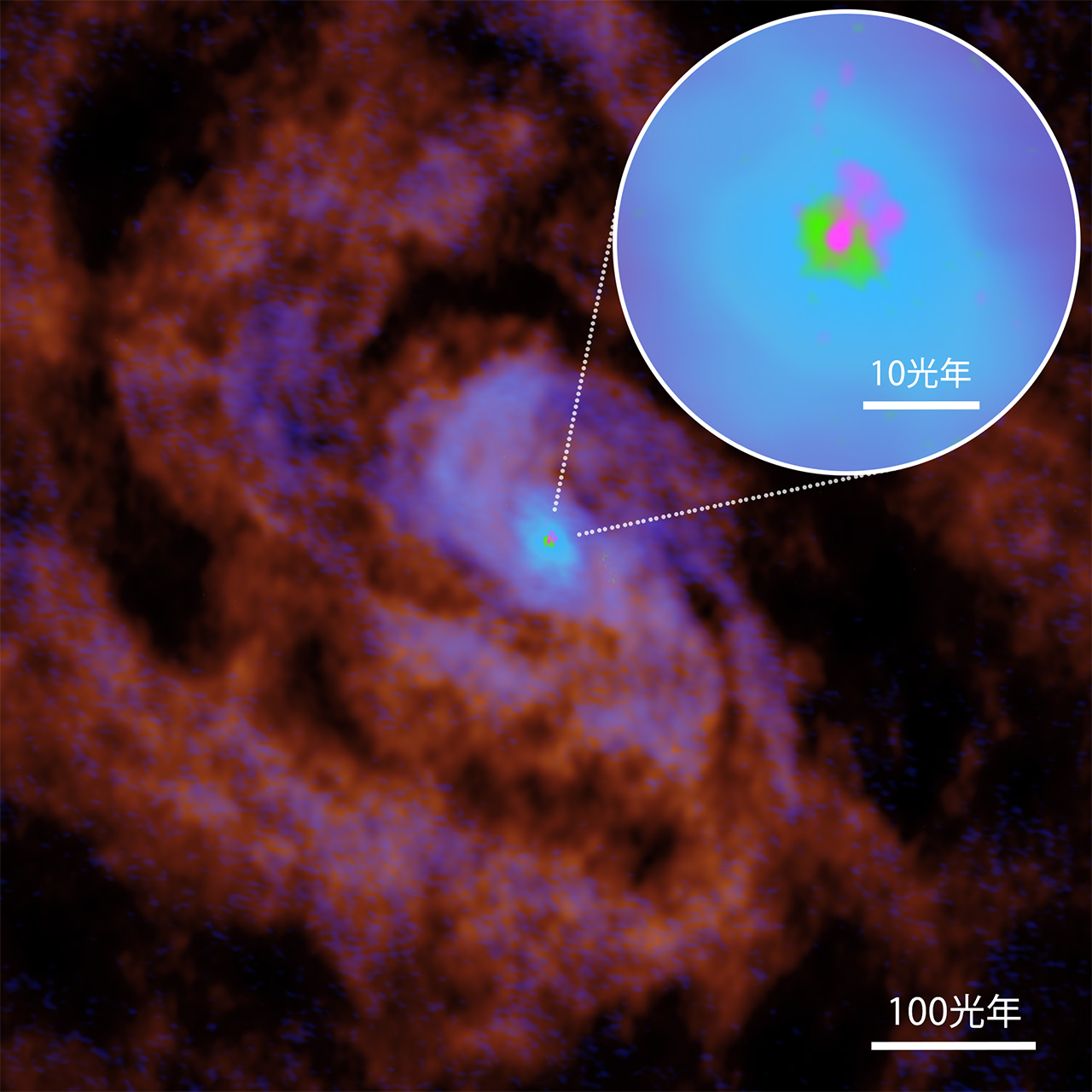2023-11-03 ニューサウスウェールズ大学(UNSW)
◆渦は海底の温度を上昇させ、海洋生態系に影響を及ぼす可能性があります。渦の動きや影響を理解することが重要で、これらは熱を蓄え、沿岸海水位を一時的に上昇させることがあります。海洋渦は大気中の嵐に相当し、温かい渦は海洋の生態系に重大な影響を及ぼす可能性があります。
<関連情報>
- https://newsroom.unsw.edu.au/news/science-tech/will-monster-eddy-current-coast-sydney-bring-new-marine-heatwave
- https://www.nature.com/articles/s43247-023-01041-8
寒冷低気圧性渦と西側境界海流の相互作用が海洋熱波を変調させる Interactions between cold cyclonic eddies and a western boundary current modulate marine heatwaves
Junde Li,Moninya Roughan & Michael Hemming
Communications Earth & Environment Published:01 November 2023
DOI:https://doi.org/10.1038/s43247-023-01041-8

Abstract
Marine heatwaves are known to cause severe ecosystem damage and therefore have received attention in recent years. However, the focus has tended to be on global (surface) studies, but not coastal waters. Cyclonic eddies are important and underappreciated components in the eddy-dominated western boundary current system, but their impacts on the path of the western boundary currents have largely been unexplored. Here we show that cold cyclonic eddies can modulate the most intense coastal marine heatwaves on record inshore of the East Australian Current. We show that the marine heatwave was driven and modulated by the lateral movement of the western boundary current jet and cyclonic eddies. This study reveals that the interplay of cyclonic eddies and a western boundary current can drive coastal ocean warming, paving the way for future investigations into eddy interactions and the evolution of coastal marine heatwaves in other western boundary current regions.



